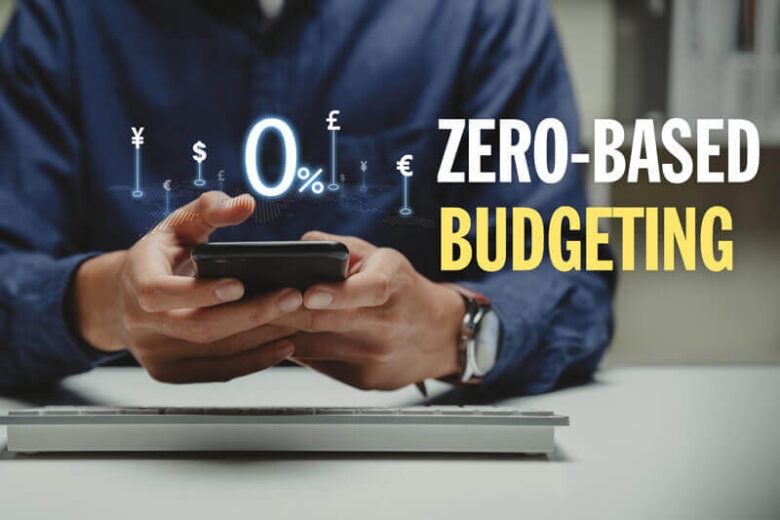Zero-based budgeting ensures that each penny earned has a specific purpose. Unlike traditional budgeting techniques that leave leftover income unassigned, zero-based financial planning begins anew every month. In this method, the income you earn minus your expenses is equal to zero. It doesn’t mean that you pay all the money you earn. Rather, it’s a matter of assigning each dollar an obligation, whether it’s for savings, bills, and debt repayment, or entertainment. It is important to make sure there is no money left unallocated at the end of your budgeting process, which will help you maintain control of your financial situation.
The Psychological Benefits of Zero-Based Budgeting
One of the biggest benefits of budgeting with zero-based assumptions is the peace of mind that it gives. When you give every dollar to a specific purpose, you’re not pondering which money you spent at the close of day. This helps reduce financial stress and provides you with an increased sense of control. Most people notice that they are less worried about unexpected expenses since they’ve prepared for unexpected or unplanned expenses. The method of budgeting can also increase consciousness, enabling you to not make impulse purchases and encouraging you to be cautious prior to spending money that’s already allotted to other priorities.
Why Zero-Based Budgeting Encourages Smarter Spending
Zero-based budgeting requires you to review your expenditures each month, which allows you to determine the source of your wasteful spending. When you look at where every penny goes, you’ll probably discover unnecessary subscriptions, reckless buying habits, and even categories in which you frequently overspend. This thorough review process will allow you to make adjustments to your spending and make more informed decisions in the future. It helps you prioritize financial goals and essentials over needs, resulting in the most efficient and effective utilization of your money. As you actively manage your money instead of just reacting to what remains, you start to appreciate it more.
Creating a Customized Plan That Fits Your Life
One of the most significant advantages of budgeting based on zero is its flexibility. You can create a custom budget each month that is based on your income,as well as fixed and variableexpenses,s and financial objectives. This makes it particularly beneficial for those who have a fluctuating income or a change in their life. If one month has more medical bills or vehicle repairs, your budget will reflect that. If, in the following month, your expenses are less and you have more money to put toward savings or debt. This flexibility makes zero-based budgeting the ideal choice for everyone, regardless of financial situation or way of life.
Integrating Your Financial Goals inYourour Budget
Zero-based budgeting can be particularly beneficial when you have a set of financial objectives. It doesn’t matter if you’re trying to repay the debt, save for the next vacation, create an emergency fund, or even invest in the future; this approach lets you allocate the funds directly towards these goals. Instead of waiting for the funds you have left to find their way to savings, you’re actively directing funds towards your goals starting from the beginning. This kind of strategic planning speeds up the pace of progress and keeps you on track. Also, it gives you the feeling of satisfaction every time you allocate funds and feel the real progress towards the achievement of something important.
How to Begin by Using Zero-Based Budgeting
The process of creating a budget that is zero-based may be difficult; however, it’s much easier than it seems. Begin by listing every source of income during the month. After that, you should write down every anticipated expense, including fixed expenses, variable costs, and goals such as savings or extra debt repayments. Continue adjusting the numbers until the total of your earnings minus your expenses equals zero. This doesn’t mean that you’re spending every c;nt, it means that you’ve thought about the place where every dollar will go. Pen or paper, or budgeting applications designed for this purpose. The most important thing is regularity and checking your budget each month to ensure that it is updated with the changing needs.
Tracking Your Spending for Greater Accuracy
It is crucial to keep track of your spending too ensure that zero-based budgeting works efficiently. If you aren’t aware of the exact location of your money, it’s hard to make a precise plan. Start by logging each expense, regardless of the size, then categorizing it according to the criteria. This will help you recognize patterns, boost your estimates for budgets, and allow you to modify your budget in time. It also helps you be accountable and makes sure you don’t overspend in one area and ignore other categories. Many find that routine monitoring becomes habitual and greatly improves their financial savvy and rigor.
Adjusting Your Budget When Life Changes
The world is never predictable, and your budget must reflect the unpredictable nature of life. Zero-based budgeting allows you to have the ability to modify your budget month-to-month. If your earnings increase, it is possible to transfer the extra funds to savings or make new priority categories. If unexpected expenses occur, you can transfer funds from lower priority categories to pay for the costs. Since you’re able to start fresh each month, it’s much easier to adjust to the changes without feeling that you’ve been unable to meet your budget. The inherent flexibility is a viable way to manage your finances over the long term in periods of uncertainty or change.
Conclusion
Zero-based budgeting is an effective and efficient method to manage your money. When you assign every dollar to a specific purpose and establish a clear and arranged financial plan for each month. This technique helps you to reduce unnecessary expenses, set objectives, and adapt to any changes in your income or expenditure. In contrast to conventional budgeting strategies, zero-based budgeting places you in complete control and requires periodic review and judicious decision-making. It’s a sensible method to be more focused, save money, and reach your long-term objectives in finance. With patience and persistence, zero-based budgeting will transform your approach to managing finances and help you get towards financial stability and financial success.
FAQs
1. What exactly is zero-based budgeting?
Zero-based budgeting is a technique that allows you to allocate each dollar of your earnings to specific goals or expenses to ensure that your earnings plus expenses equal zero.
2. Is zero-based budgeting a good option for income that is irregular?
Yes, it is effective for those with a variable income since you create the plan each month in line with what you hope to make.
3. Do I need to spend every penny to get it to zero?
The goal is not to spend every penny but to make sure that every dollar is allocated, even those that go towards savings or repayment of debt.
4. How can I keep track of expenses using budgeting that is zero-based budget?
You can track your expenditure during the month by using a notebook, a spreadsheet, or a budgeting application to keep within your budgeted spending limits.
5. Can I alter my budget based on zero every month?
If you have to pay for unexpected expenses that occur, you are able to transfer funds from different categories to help keep control.




